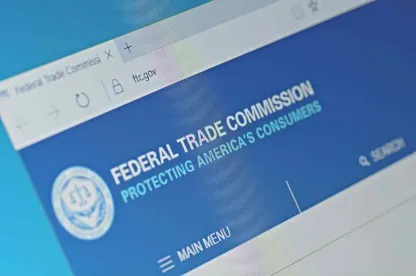On November 10, the Federal Trade Commission held a virtual public workshop addressing the continued utility of its Trade Regulation Rule entitled “Disclosure Requirements and Prohibitions Concerning Franchising,” 16 CFR Part 436 (the “FTC Rule”). The workshop was part of a systematic review of all FTC regulations and portends potential revisions to the Rule.
The workshop focused on three issues: (1) financial performance representations, (2) the use of disclaimers and (3) the format of the FDD. Among the participants at the workshop were state franchise administrators, franchisor and franchisee counsel and at least one franchisee.
Financial Performance Representations
Commentators consisting of state franchise regulators, franchise attorneys and franchisees argued for and against revising the FTC Rule to mandate that franchisors provide a financial performance representation. A state regulator noted that such information is most important to prospective franchisees and that the cost to franchisors of providing financial performance representations is offset by the benefit to franchisees. Others argued against mandatory financial performance representations, claiming, among other reasons, that eligible franchisee information may not be available, franchisees are either not reporting their earnings or other information to the franchisor or are reporting figures that are suspect or the franchise system is young and does not have a performance history.
Disclaimers, Waivers and Questionnaires
In this workshop, commentators highlighted the distinction between explaining the content of the FDD and disclaiming it, noting that the prohibition on disclaimers has resulted in the rejection by state administrators of explanatory language. As a result, franchisees are more likely to misinterpret the FDD.
With respect to the use of questionnaires and acknowledgements in the franchise sales process, some commentators were critical of questionnaires, claiming that they discourage franchisee transparency about having received impermissible information in the disclosure process. These commentators also noted franchisors’ use of questionnaires and acknowledgements as an improper means of avoiding liability for sales law violations and other claims, such as fraud. Other commentators defended use of questionnaires and acknowledgements, citing their role in clarifying that only information provided by the franchisor—and not from other sources or parties—should be relied upon by the franchisee.
The Current FDD Format
Much discussion was had as to whether a summary document should be added to the FDD. Some commentators raised concern that a summary would discourage prospects from reading the full FDD, and that the summarized issues may not address all those that are material to the prospect. Another spoke in favor of a summary, claiming that it could bring front and center the essential FDD Items. There was also a difference of opinion as to whether the length of the FDD deters prospects from reading them. All commentators seemed to favor providing FDDs electronically with hyperlinks and search functions.
Expected Changes to the FTC Rule
While the FTC has not directly stated what, if any, changes will be made to the FTC Rule, it is likely that modest revisions will be proposed. This would be consistent with past practice. Following the FTC’s 1995 regulatory review, the FTC felt compelled to make changes; however, relatively limited. Perhaps this was a reflection of the fact that the FTC Rule had been in effect for a considerable period of time without tremendous public complaint, and due to the complexity in imposing a single rule that is applicable and relevant across a wide range of industries and circumstances.
Among the most likely changes that we anticipate are the following:
-
Incorporation of the recent NASAA financial performance representation commentary into the FTC Rule. This change is a relatively easy one for the FTC. The commentary has been vetted by the franchise administrators of the roughly fifteen states that regulate the offer and sale of franchises and addresses the Item 19 requirements of the FTC Rule. Moreover, because the NASAA commentary has, for all practical purposes, been adopted by the state franchise administrators, franchisors that are lawfully offering and selling franchises in one or more of these fifteen states are already complying with the NASAA commentary. As a result, the FTC’s adoption of the NASAA commentary would have little real effect upon most franchisors;
-
Clarity regarding prohibited disclaimers. The FTC could, and likely should, fill this void. There has existed considerable uncertainty as to what constitutes a prohibited disclaimer. A uniform definition or set of guidelines would reduce the uncertainty, and thus reduce the unnecessary legal risk that has resulted from it; and
-
Additional regulation to promote electronic disclosure. The FTC Rule currently permits franchisors to deliver their FDDs through electronic means, and a significant number and percentage of franchisors do so. However, the FTC Rule prohibits the inclusion of any content and links beyond the FDD itself, other than basic navigational tools. The FTC may loosen this restriction, permitting hyperlinks to, among other things, the FTC and state websites. It may also encourage franchisors to post their FDDs on their websites.
We do not expect that the FTC will mandate financial performance representations or the addition of a summary document to the FDD. These changes would be far more substantive and significant than the changes that we anticipate, and would likely cause confusion and uncertainty (as well as heightened legal risk and disputes resulting from that confusion and uncertainty).
The FTC is accepting public comments on the FTC Rule until December 17. It remains to be seen whether the FTC will adopt any changes to the FTC Rule and, if so, the nature of the changes. However, based upon the workshop, the FTC’s focus appears fixed on financial performance representations, disclaimers/waivers and summary documents.





 />i
/>i
